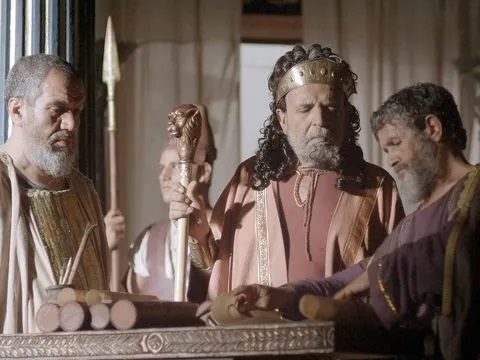Twas The Night After Christmas
Imagine a seasoned customs officer who spent years scrutinizing a regular truck driver at the border, suspecting him of smuggling. After exhaustive searches yielding nothing—tearing apart panels, employing X-rays, even sonar—the officer retires, still puzzled. On his last day, he confronts the driver, who reveals he had been smuggling the trucks themselves all along. This story poignantly illustrates how easy it is to overlook the obvious, much like the oversight that occurred with the birth of Jesus.
The biblical account of Jesus’ birth is a profound narrative filled with simplicity and divine subtlety. Born in Bethlehem, away from the pomp of palaces and the scrutiny of religious leaders, His arrival went largely unnoticed by the societal elites who were supposedly vigilant for the Messiah's prophesied coming.
"Where is the one who has been born king of the Jews?" asked the Magi from the East, who had followed His star (Matthew 2:2). This question underscores a striking contrast: foreign dignitaries recognized and sought Jesus, while His own people, saturated with scripture and prophecy, were oblivious to His birth.

The historical backdrop is rich with anticipation—over 400 prophecies foretold the coming of a Messiah. Yet, the most significant event in human history unfolded in an understated scene in a small town, attended only by shepherds on a silent night, and later, these wandering scholars from afar. The inherent humility of this scene juxtaposes sharply with the expectations of a grandiose deliverance awaited by the Jews.
During His ministry, Jesus openly declared His identity and purpose yet faced constant doubt and rejection—even from those closest to Him. The gospels recount numerous instances where His teachings were met with skepticism rather than faith, His miracles with suspicion rather than worship. This pervasive misunderstanding culminated in His crucifixion, a profound tragedy born of fear and misrecognition.
The poignant story of Joseph and Mary seeking refuge in Bethlehem echoes this theme of rejection. No one in Joseph’s ancestral home recognized the holy family’s need, nor the significance of Mary’s impending delivery. This cold reception starkly contrasts with the warm welcome one might expect for a family of such importance.
This historical oversight challenges us as modern-day believers. Are we, like the citizens of Bethlehem or the religious leaders of Jerusalem, too caught up in our own constructs and expectations to see the truth before us? Are we too comfortable in our understanding of scripture that we fail to see its unfolding revelations? Just as the innkeepers turned away Joseph and Mary, are we, too, guilty of shutting our doors to deeper spiritual insights because they do not fit within the familiar confines of our expectations?
The Magi’s journey is an excellent example of spiritual diligence. Unlike Herod and the religious authorities of Jerusalem, who were troubled by the birth of a new king, the Magi sought Him earnestly. Their quest led them not to palaces, but to a humble abode in Bethlehem. Their recognition and worship of Jesus as the newborn King highlight a profound spiritual truth: God reveals Himself to those who seek Him with sincerity and humility.

As we reflect on this narrative, it's crucial to consider our own spiritual journey. Are we like the Magi, vigilant and proactive in our search for divine truth? Or are we more akin to the indifferent or even hostile religious figures from Jesus’ time, who overlooked the fulfillment of God’s promises unfolding right before their eyes?
This Christmas season, and in all the days that follow, let us strive not to make the same mistake. Let us be watchful and receptive, ready to recognize and embrace Christ in all aspects of our lives. We must continue to seek Him earnestly and humbly, just as the Magi did, guided by the light of His truth and not blinded by our biases or expectations.
ABOUT THE AUTHOR
Robert Cooke is a member of the Danville church and serves as an elder. He is retired from the United States Department of Agriculture. He has an incredible ability to turn sermons into stories. This blog post is from his sermon of December 38, 2024

